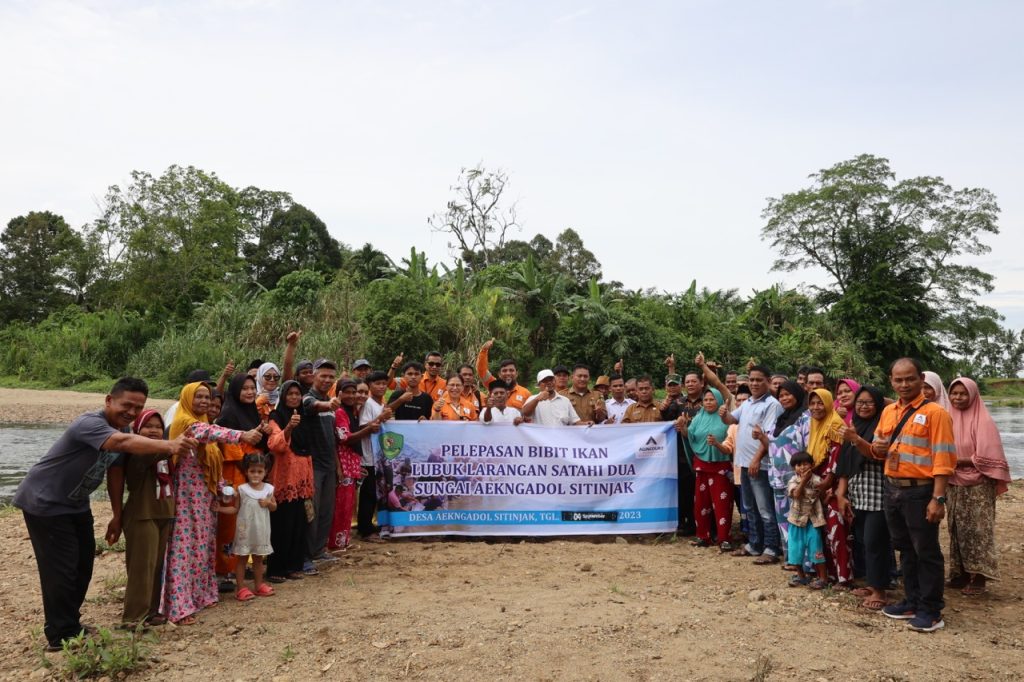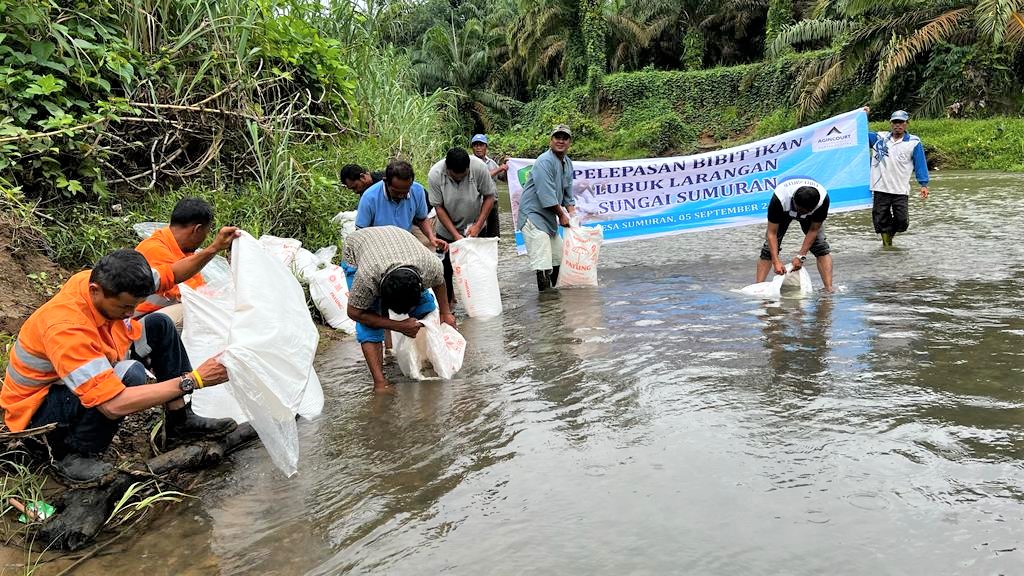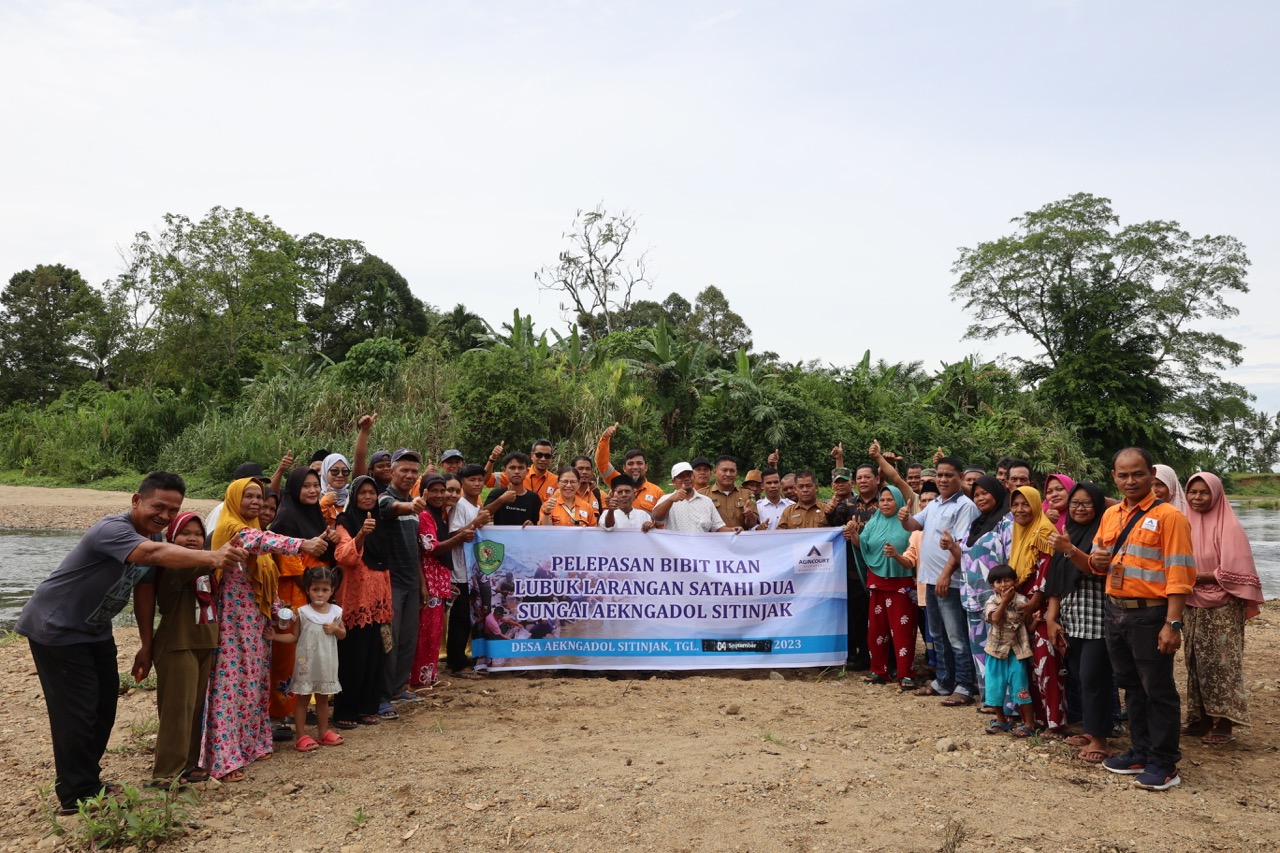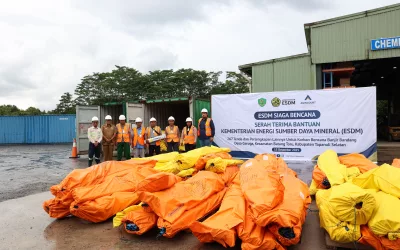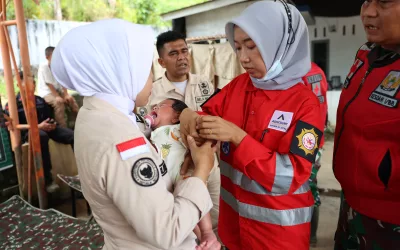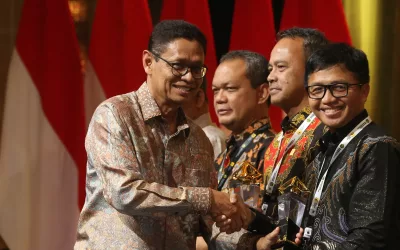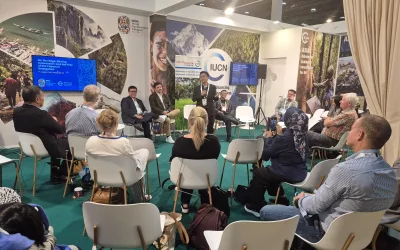Batangtoru, 10 September 2023 – PT Agincourt Resources (PTAR), the operatorof the Martabe Gold Mine, has again demonstrated conservation actions in the Batangtoru waters. This time, PTAR expands lubuk larangan zone to the Aek Ngadol River and Garoga River in Sumuran Village in Batangtoru Sub-district, South Tapanuli, North Sumatra, by releasing tens of thousands of jurung fish seeds and goldfish seeds.
Community Senior Manager of PT Agincourt Resources, Christine Pepah, said this activity is one of PTAR’s efforts to conserve aquatic resources and improve the quality of aquatic ecosystems and the environment, which in the end will be economically beneficial because it can increase village cash income.
“Lubuk larangan maintains local wisdom which is local cultural heritage and contains traditional values and roots in managing and developing water conservation. We really appreciate the concern of the people of Aek Ngadol Sitinjak Village and Sumuran Village who have been involved in the establishment of this lubuk larangan. We hope that people in other villages can follow the example of villages that have implemented lubuklarangan,” said Christine.
Lubuk larangan is a certain zone in a river that is demarcated based on the community’s agreement not to disturb the existence or habitat of the river, and that they are not allowed to take fish in that zone for a certain period.
Read Also: Supported by PTAR, Garoga Village Opens “Lubuk Larangan”
A total of 7,000 jurung fish seeds and 1,600 goldfish seeds were released into the Aek Ngadol River, precisely in AekNgadol Sitinjak Village. Thousands of fish seeds were allowed to grow in the 6-kilometer-long lubuk larangan. Meanwhile, in the Sumuran Village River, which is part of the Garoga River, PTAR and the community also released 7,000 jurung fish seeds and 1,600 goldfish seeds in the 2-kilometer-long lubuk laranganzone.
“Lubuk larangan is a form of environmental conservation that we consistently carry out. After establishing lubuk larangan in these two villages, we will move to other villages to establishlubuk larangan. We will also restock 3,200 goldfish seeds in lubuk larangan of the Garoga Village which were harvested last May,” said Christine.
The Head of Aek Ngadol Village, SaoloanSitompul, said that the establishment and closure of lubuk larangan are accompanied by the imposition of sanctions. Anyone who catches fish during the closure period will be fined IDR 3 million. This sanction amount is also applied in Sumuran Village.
“The committee of lubuk larangan, assisted by the community, will monitor lubuk larangan during the closure period which could take 8 to 10 months. The people here realize that lubuk larangan is a shared location that will bring benefits to this village,” said Saoloan.
The Head of Sumuran Village, Sarman, hopes that when lubuk larangan is opened or also known as fish harvest, the benefits of lubuk larangan will be experienced by the community. The committee of lubuklarangan will sell tickets for anglers who participate in the opening of lubuklarangan.
According to him, the village and the committee have made an allocation of funds that will come from the opening of lubuk larangan. Some are for donations to orphans and the elderly and under-privileged families, others are for improving village public facilities.
“Another important thing is that the community is involved in preserving the environment in the river and around the river and avoiding actions that could result in pollution and environmental damage. Sustainable rivers are certainly beneficial for the future of our children and grandchildren,” said Sarman.
Prior to the Aek Ngadol River and Sumuran Village River, PTAR developed lubuk larangan on the Garoga River, specifically in Garoga Village and the Batu Horing River. In May 2023, the GarogaVillage’s lubuk larangan was successfully opened for collective harvesting with the community. As seen from the great enthusiasm of the people, the harvest was held twice. The harvest of lubuk laranganat that time generated income of around IDR 40 million which was used for the village needs.
